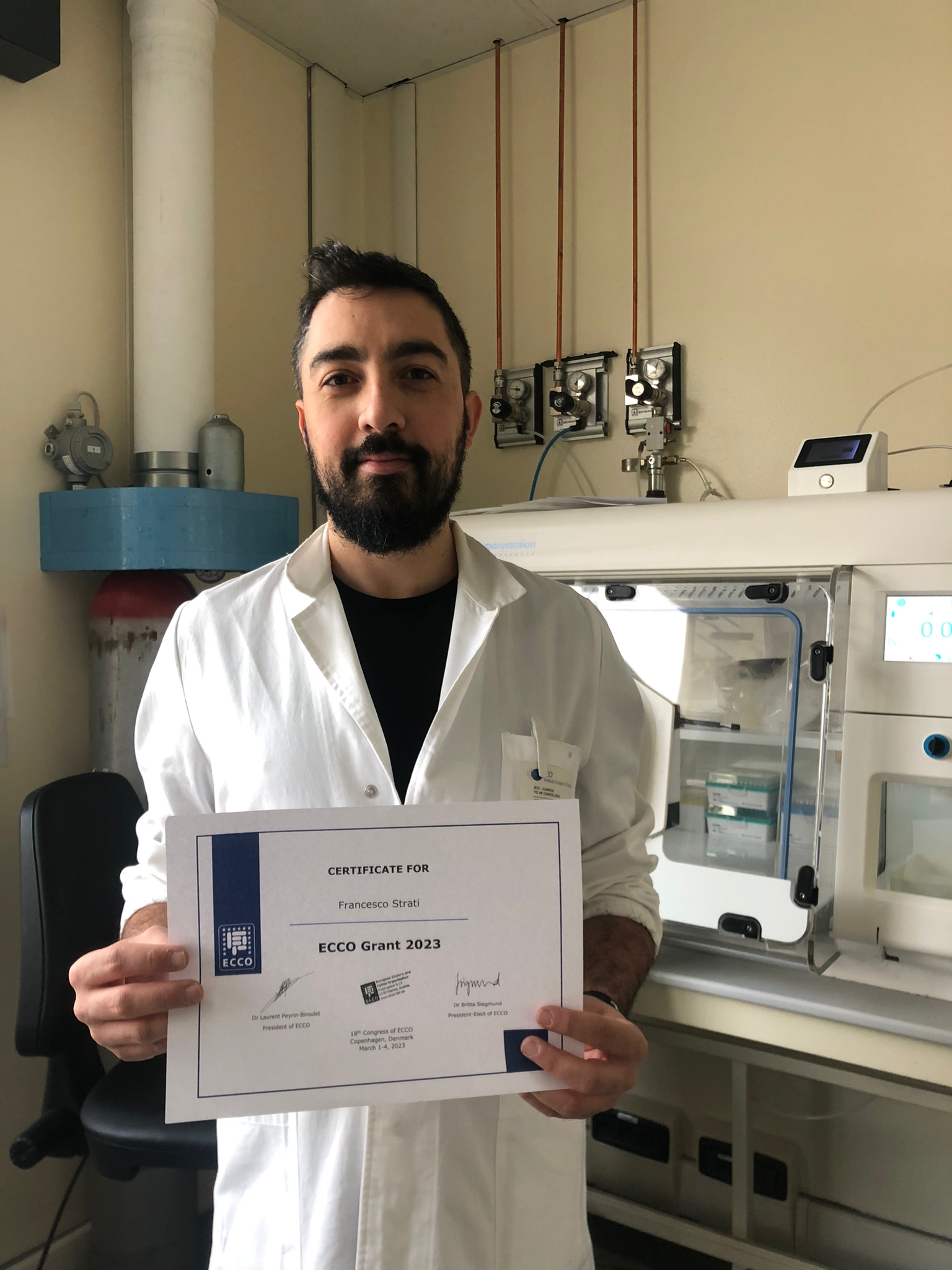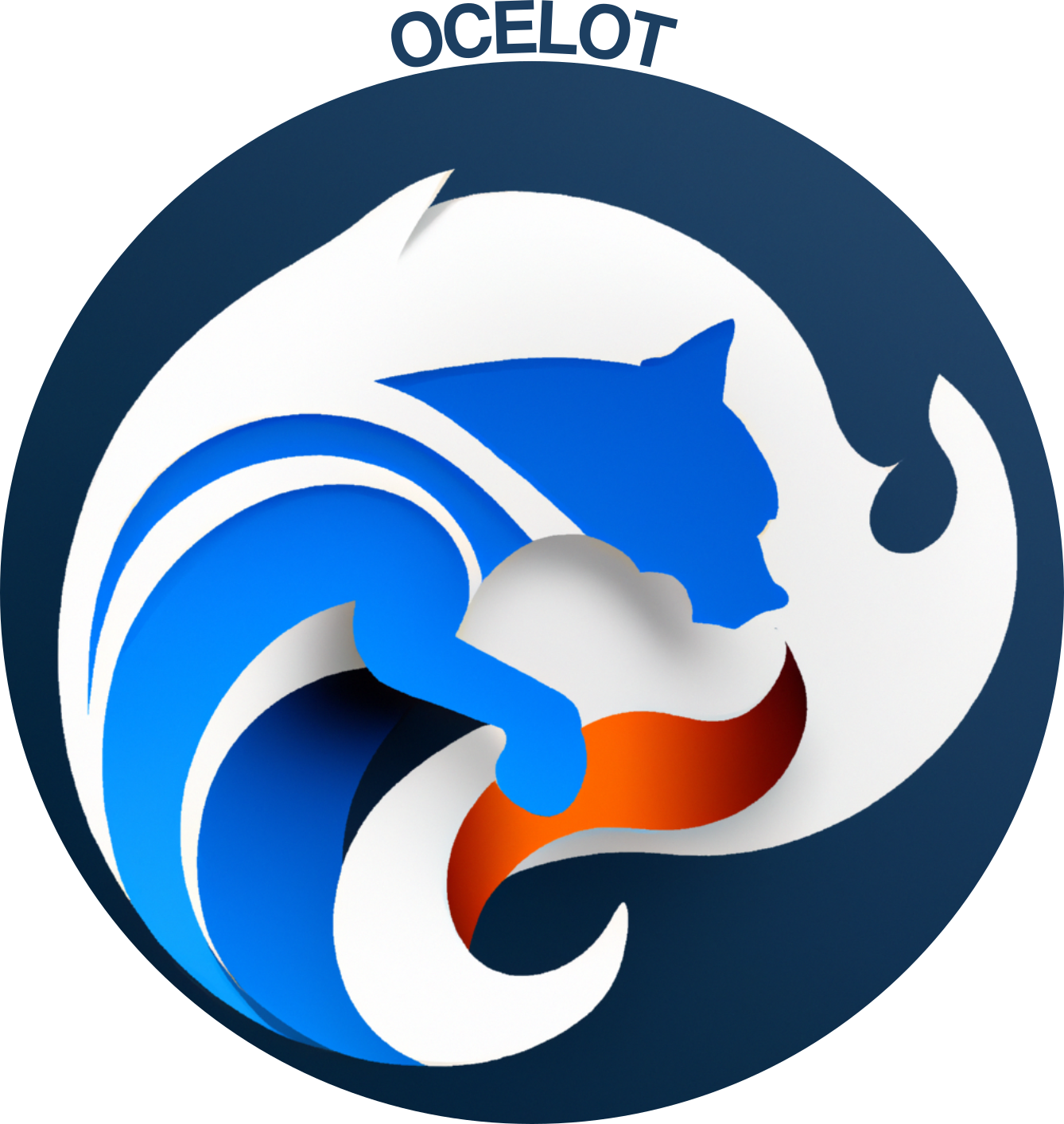ECCO Grant Study Synopsis: Francesco Strati
Francesco Strati, ECCO Grant Awardee
iNKT cells immunomodulation and mucosal healing by microbiota-derived lactate (OCELOT)
 Francesco Strati © Francesco Strati |
Background & aim of research
Invariant natural killer T (iNKT) cells are unconventional T lymphocytes that play a critical role in mucosal immunity. Although iNKT cells sense the microbiota of IBD patients, promoting pro-inflammatory responses, their rapid responsiveness to the intestinal microenvironment can be harnessed to promote immunoregulatory rather than pro-inflammatory responses. OCELOT’s central hypothesis is that iNKT cells are the primary immune cells that sense microbiota-derived metabolic signals promoting the resolution of inflammation. In particular, OCELOT argues that microbiota-derived lactate can tightly control iNKT cell function, promoting mucosal tolerance while preventing T cell-mediated inflammation and tissue injury.
Methodology/experiments that will be used
iNKT cells will be immunophenotyped by multiparametric flow cytometry and image cytometry from surgical specimens of CD patients to correlate their phenotype with intracolonic levels of lactate, microbiome functions and tissue injury/healing. We will study the molecular pathway determining the iNKT immunoregulatory phenotype in a lactate-enriched microenvironment by RNA sequencing, chromatin immunoprecipitation sequencing and in vivo experimental colitis models.
Anticipated main impact
This proposal will redefine the role of iNKT cells in IBD, changing the paradigm that regulatory T cells (Tregs) are the primary T cells promoting homeostasis during chronic inflammation. By testing the role of microbiota-derived lactate in inducing iNKT immunoregulatory responses, OCELOT will demonstrate how to exploit iNKT cells’ plasticity in many other chronic inflammatory conditions, with far-reaching implications for health. Finally, this project will open the opportunity to test a new hypothesis, i.e. that the iNKT-mediated anti-inflammatory effect associated with metabolic reprogramming of epithelial cells contributes to the resolution of epithelial metabolic injury.

© Francesco Strati
Proposed timeline
OCELOT will be organised in two working packages designed to run in parallel, to inform and complement each other. The end of the first semester will mark the first important milestone, i.e. the in vitro characterisation of iNKT cells in a high-lactate microenvironment. It is envisioned that by the end of the year the last important milestones will have been achieved, namely the completion of patient recruitment and finalisation of the animal work.


